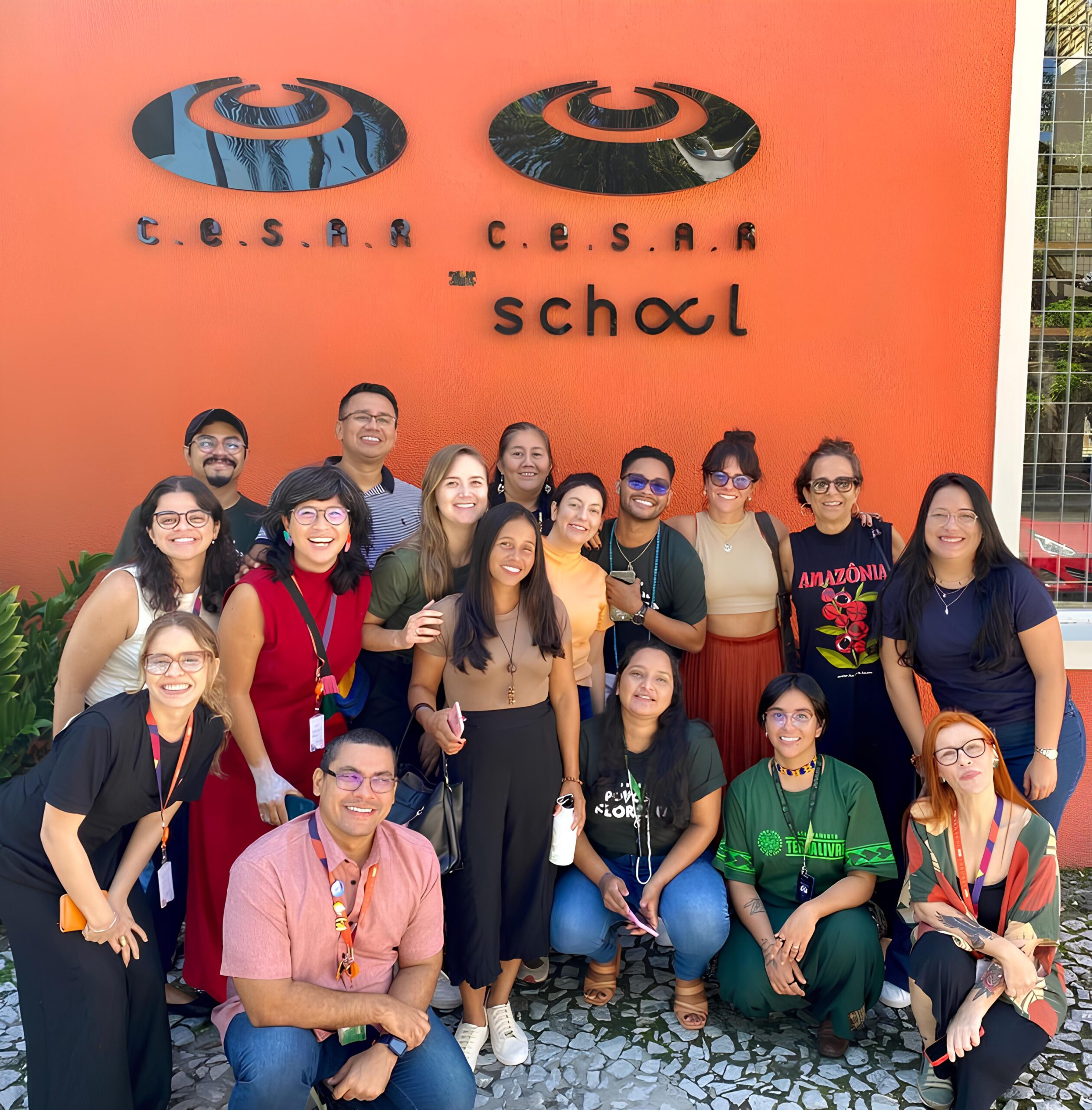Fundo Vale participated in initiative, alongside leaders of indigenous communities, descendants of runaway slaves, extractive producers and partner institutions

Between May 13 and 17, CESAR School held a design thinking workshop in Recife for the Forest Peoples Connection project – an initiative supported by Fundo Vale and made up of a network of partners that aims to connect more than 1 million people in communities in protected areas of the Brazilian Amazon via broadband internet. The purpose of the workshop was to design a platform for physical, digital and social solutions to help promote entrepreneurship in the Amazon.
The workshop was attended by 12 members of the project’s Entrepreneurship Working Group. It is hoped that the workshop will help strengthen the participants’ culture, improve their quality of life and conserve their communities.
“The workshop was extremely productive and facilitated a rich exchange of knowledge among the participants. Directly involving community members in the construction of solutions is essential in the process of promoting social and environmental impacts,” said Camila Maia of Fundo Vale’s Amazon and Partnerships Area.
CESAR School’s main site is located in Recife, Pernambuco, inside the “Digital Port,” one of Brazil’s foremost technology and innovation parks. Holding the workshop in this environment provided the participants with an immersion in an ecosystem of digital solutions, promoting the exchange of knowledge and expertise.
Forest Peoples Connection
Forest Peoples Connection is a joint initiative that aims to connect more than 5,000 indigenous groups, quilombos (settlements composed of descendants of runaway slaves), extractive groups and riverside communities in protected areas of the Amazon via broadband internet. The idea is to combine connectivity and energy with inclusion, safety and empowerment programs in these communities.
The project is led by three grassroots organizations – the National Association of Rural Quilombo Communities (CONAQ), Association of Indigenous Organizations in the Brazilian Amazon (COIAB) and National Council of Extractive Groups (CNS) – in partnership with more than 30 civil society organizations, institutions and companies.
